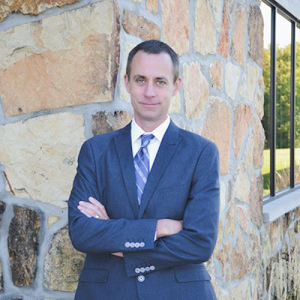Introduction to Probate in Wisconsin
When dealing with the aftermath of a loved one’s passing, life can feel like a whirlwind of responsibilities and paperwork. It’s as if you’ve taken on a new job, one that involves sorting through belongings, deciphering forms, and signing documents that make you feel like a lawyer. Amidst all this, you have to ensure even the family pets have a safe place to stay.
Costs of Probate in Wisconsin
On a broader scale, probate is just one part of the estate settlement process that can consume over 500 hours and $15,000 during the first 18 months following a loved one’s passing.
Understanding the Probate Legal Process What You Need to Know
Probate in Wisconsin refers to the formal, court-supervised process of executing a person’s last wishes. This includes validating their last will and testament (if applicable), settling debts and taxes, and distributing the remaining assets to the rightful heirs.
In essence, probate is the legal procedure for collecting all the assets a person owned and officially transferring them to the correct individuals, while also settling any obligations to the government.
This process commences with a call to the court and concludes when all estate taxes are settled, death certificates are filed, and assets are properly distributed to the beneficiaries.
Probate serves the purpose of preventing a free-for-all situation where family members lay claim to the deceased’s assets. It also ensures that essential matters like death certificates, funeral arrangements, and estate taxes are handled correctly.
Because probate is a legal process, it is subject to specific rules and procedures that can vary depending on local laws, established practices, and applicable forms.
Hiring a Probate Lawyer Benefits of Getting Help
While it’s entirely possible to navigate the probate process independently, numerous compelling reasons exist for considering the services of a probate lawyer. Hiring a probate attorney can significantly simplify what can be a complex and emotionally taxing procedure. Here’s why enlisting professional legal help is often a wise choice:
1. Expert Knowledge of Probate Laws:
Probate lawyers possess in-depth knowledge of the intricate legal requirements and procedures involved in probate. Their expertise can be invaluable in ensuring that every step is completed accurately and in compliance with the law.
2. Efficient and Effective Handling:
Probate lawyers are well-versed in streamlining the probate process. Their experience allows for efficient handling, reducing delays and complications that might arise when managing it independently.
3. Court Representation:
In situations where legal disputes or challenges emerge during probate, probate lawyers can adeptly represent their clients in court. This legal representation is particularly crucial when conflicts arise among heirs or beneficiaries.
4. Resolution of Heir Disputes:
Heated disagreements among heirs can be emotionally draining and disrupt the probate process. A probate lawyer can serve as a mediator and work towards resolving disputes, helping to maintain family relationships.
5. Expertise in Tax and Estate Planning:
Probate attorneys can provide invaluable advice on tax implications and estate planning strategies. This guidance can help you minimize tax burdens and efficiently distribute assets according to the decedent’s wishes.
In conclusion, while it’s possible to tackle probate without legal assistance, the benefits of hiring a probate lawyer are numerous. Their knowledge, efficiency, courtroom representation, dispute resolution skills, and expertise in tax and estate planning can make the probate process smoother and more manageable during what is often a challenging time. Consider consulting a probate lawyer to ensure that your loved one’s affairs are handled with care and precision.
Personalized Guidance is a Call Away
Probate is a complex legal process with various intricacies and potential challenges. To navigate this process efficiently and ensure that you fulfill all legal obligations and responsibilities, it’s advisable to seek professional legal assistance. Dahlberg Law Group has the expertise and experience to guide you through the probate process in Wisconsin. Our team can provide valuable legal advice, representation, and ensure that you meet all deadlines and requirements. Don’t hesitate to contact Dahlberg Law Group for expert assistance in handling probate matters and securing your loved one’s legacy.




























